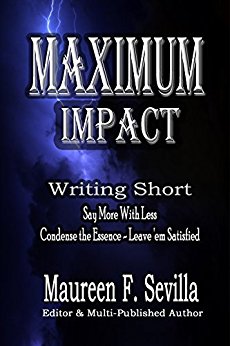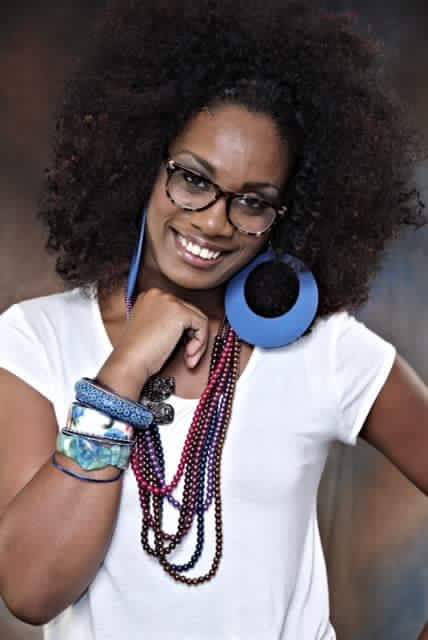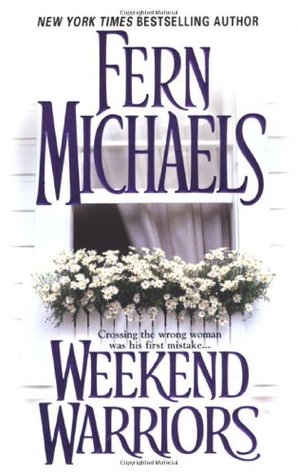
Maybe it’s my imagination, but it seems as though the acknowledgements section of practically every book I pick up includes a shout-out to the writer’s critique group. My primary reaction is nearly always envy: how did the writer find a group of people who were willing and able to provide useful criticism of her manuscript?
My experience with critique groups is mixed. In college, I was required to take Writers Workshop. The experience was so harrowing that I stopped writing for twenty-five years.
When I next poked a toe into the world of creative writing, I was blessed to find someone who was an excellent writer, kind and supportive, but also trustworthy in that she was willing to tell me if something didn’t work. With her encouragement, I began to post stories on the website where we met, in large part because the site’s owner had a hard and fast rule that public reviews were to be positive only. That site has long since vanished, but having that safe place in my early writing experience was invaluable.
During that time, I met other online friends with whom I swapped critique services. Nothing formal, but at one point, I was fortunate enough to have three people—all excellent writers with different approaches—commenting on my drafts. Some of them even talked of wanting to publish, as did I.
Eventually, I came to the decision that it was time to pass or play: either commit to writing and publishing, or stop pretending it mattered to me. I chose to commit. Not unreasonably, I expected my writer friends to be thrilled and supportive. For the most part, they were at first, but then a funny thing happened: they began to drop away. The second time I had a story published in an anthology, one of them admitted in a public post that she still hadn’t read my first published story. On another occasion, when I was visiting one of these friends because we were both attending a writers’ conference near her home, I asked if she’d be willing to read a chapter I was struggling with. She looked up from her laptop and said, “Oh, I don’t have time.” Since we were both on vacation, her response stung. (Recently, she lamented to me that she’d submitted a story for publication, but none of her friends seemed to be interested in it. I assured her, “I know exactly how you feel.”)
Fortunately, another friend stepped into the void. She is a gem who holds the distinction of being the only person, other than me, who has read two drafts of my novel-in-progress. She is both a reader and a writer, and her comments and insights have made my book much, much better.

I’ve attended classes and conferences in the hope of meeting people with similar aspirations and enough incentive to form a critique group. One of these classes led to an invitation to join a writing group here in town. I spent a year with this on-again-off-again group, and it was fine when I was writing short stories, but it wasn’t a useful forum when I turned my focus to my novel. The infrequency of the meetings, coupled with the format (reading aloud, rather than exchanging pages in advance), meant that it was best suited to short standalone pieces. Nobody could reasonably be expected to remember the flow of a novel-in-progress from which I’d read a ten-minute excerpt a month ago.
I recently went to a meetup of writers, but I came away with very mixed feelings. Most of the attendees seemed to be nice, reasonable people (there are always one or two outliers), but a number of factors, such as the size of the group, makes me wonder how useful it will be. The group, which anticipates meeting twice monthly, had more than twenty people at its initial gathering. This means that an individual’s work may be critiqued once or twice a year, if that. I’m still on the fence about this one, but I’m leaning toward “no.”
One thing I’ve learned over the years is the importance of knowing what I need in a critique group. Constructive criticism is an art form most people have not mastered. Here are some of the types I’ve found in writers’ groups and classes. (Note: I’m not talking here about paid developmental editors. That’s a different topic altogether.)
The Know-It-All. This person believes himself to be the ultimate authority on whatever the issue is. One person at the meetup arrived with his “Who’s Who in America” prize and a binder of material he’d used to teach writing. At one point, he inquired whether anyone had published. I said I had. He asked if I’d published fiction; I said yes. He asked where; I told him online periodicals and anthologies. He then informed me that nobody takes online periodicals seriously and that I should publish in print journals. I told him that if Slate or The Huffington Post want my work, they can have it. He informed me they don’t publish fiction. I let the conversation drop, not only because it was pointless, but because I knew the Know-It-All needed to win and it wasn’t going to be over until he was confident that he had established himself as “better.”
The Questioner. The Questioner doesn’t tell you that the piece is good or bad. Instead, she asks questions: “I was confused when Jon said this to Sara. What was that about?” I find this to be an enormously helpful approach, whether I’m the Questioner or the Questionee, because it helps the writer to dig more deeply into why a scene is written as it is. A few years ago at the Wesleyan Writers Conference, noted author Roxana Robinson was one of the fiction teachers, and she reviewed a story I was working on. I submitted it in advance per the rules, so when we sat down to discuss it, she’d already read it and made notes. Even so, one of the first things she did was to ask about a character who arrives at the beginning bearing news. Her question: “Is Mr. Harrison going to be a significant part of the story?” I conceded that he was not. She followed up: “Then why are you giving him the first two pages of your story?” As soon as she said it, I knew there was no good reason. This was the moment I truly began to understand that “show, don’t tell” has limits. I deleted that scene, reducing Mr. Harrison’s presence to a single line of dialogue where one of the children said, “Mr. Harrison came by, and he said. . . .” That story was “Disappearing,” and it went on to become my first sale.
The Opinionator. This person has an opinion on everything. The problem is that (in my opinion), an opinion is not critique, and it is generally useless. In the on-again-off-again writing group, I read a section of my novel with which I was struggling. At the end, one of the group members announced, “You lost me.” I asked him to explain. He said, “I don’t know. You just lost me.” There was nothing I could do with such a comment, and so I disregarded it as critique, but it still annoyed me. An opinion is simply that: someone’s subjective thought on the story. “I like it” or “I hate it”—they’re both opinions, and neither will help the writer refine the work.
The Validator. This is the person everyone adores, because no matter what you read, she’ll adore it. Don’t get me wrong—I love to hear how wonderful my work is. The thing is, sometimes it’s not. The purpose of asking for critique is to figure out how to strengthen it. Maybe the Validator truly thinks the work is fabulous, or maybe she’s too kind or too shy to say anything negative. Either way, while she’s great for ego-stroking, she’s not the person to turn to when you know a scene doesn’t work.
The Fixer. This person will not only tell you what needs fixing, but he’ll suggest ways that you can do it (“Maybe if you have Neil skip the meeting and go straight to the golf course. . . .”) There are divergent schools of thought about the Fixer. Some writers appreciate the suggestions; others find him presumptuous. When I took Roxana’s class, her rules for critique included this: you could comment on something that didn’t work, but you couldn’t suggest how to fix it. My impression was that she didn’t feel it was our right to tell someone else how to write their story. I don’t know whether she would apply the same rule to a critique group where the participants have gotten to know one another and a level of trust has been established.
For me, the trusted beta-reader is always free to make such suggestions. The friend who has read my novel twice noted after her first reading how disappointed she was that I’d drawn a veil over the book’s lone sex scene; she felt the readers were entitled at least to a glimpse after hundreds of pages of foreplay. I considered this and decided she was right, so I expanded that part. Another friend is excellent at pointing out when I’ve begun a story in the wrong place, saying things like, “The story really starts on page three.” I’ve never gone wrong following her recommendation on that issue.
The Brutally Honest One. This person is from the tough-love school of writing. If this person is reading your work, it’s important to be very, very clear about what you want them to do. Otherwise, you may get your story back marked up with so much red ink that it looks as though there was a massacre on the page. If you ask the BHO to be brutally honest, you may get what you’ve asked for.
Back when I was a fairly inexperienced beta-reader, someone sent me a story and asked me to go over it as if it were my own. I asked her if she really wanted me to do this, and she assured me she did. So I was the BHO—and she was devastated. She said she wanted tough critique, but she wasn’t ready for it. Even though I’d noted things she’d done well in addition to things that didn’t work, she only saw the criticism. The last I heard, she’d abandoned that story completely, and she never again asked me to read any of her drafts. My takeaway from that experience: even if someone asks for brutal honesty, hold back until you see how they handle softer critique. And if you’re the one asking for brutal honesty, don’t do it unless you and the person critiquing are on the same level in terms of experience and ability. (She had the ability, but not the experience.)
The Callous One. Another comment I heard at the meetup when we were talking about the type of critique the group would offer: “We’re all big people. We can handle criticism.” Translation: “I’m going to say whatever I want, and if your feelings are hurt, that’s your problem.” The issue isn’t age as much as it’s experience. I’ve been doing this long enough to have developed some armor, but a number of people had introduced themselves as having little or no writing experience. The assumption that I can say whatever I feel like saying without regard for your feelings overlooks the fact that fledgling writers need to be handled with care. Some have tougher skins than others, but few, if any, are equipped to handle the BHO.
The One Who Knows. This person is vastly different from the Know-It-All. This person has enough experience as a writer and a reader to recognize when something doesn’t work, even if she doesn’t have a suggestion for fixing it. She might be a grammar expert, or she might be a logical thinker who can spot a plot hole or gap in chronology that everybody else missed. She may be like the people I’ve described who tell me what’s missing or where the beginning of the story really is. She reads closely, and she understands the writing process. This person is gold.
************
Finding a critique group is difficult. Sometimes, the first one you tumble into will be just exactly what you need. Other times, you may need to date a number of writing groups before finding a fit. Don’t be discouraged if you go to a writing conference where everyone is exchanging business cards and promising to keep in touch and critique each others’ work afterward, and then you never hear from any of them again. Think of those experiences like summer camp: how many people really meet their BFF at Camp WriteMore? Your group may end up being a handful of individuals who don’t know each other, but with whom you have relationships, in person or online. That’s okay: one-on-one critique is immensely valuable. Whether your group is two people or a dozen doesn’t matter. As long as you nurture each other’s creative spirit and reciprocate in reading and commenting on each other’s work, you’ll be able to extend genuine, heartfelt thanks in the acknowledgements section of the book you will one day publish.
Share this:- More






